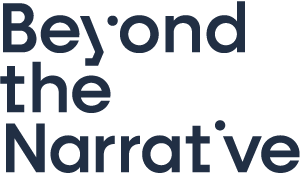Stoicism is one of the many narratives emerging
“A stoic transforms fear into prudence, pain into information, mistakes into initiation, and desire into undertaking."
Source: Nasim Taleb, Modern Philosopher
Confined to our homes, many of us have found ourselves staring out our windows vacantly, trying to grapple with the torrent of challenges 2020 has unleashed. The security and predictability of life has been disrupted, and naturally we begin to contemplate how we can move forward when the path before us is so unknown. In these times though, when illness and isolation are baring the frailty of human bodies and testing the composure of human minds, the words and experiences of ancient stoics appear to hold lessons directly relevant to our lives under pandemic.
Source: CBC Radio
Neo-Stoicism the modern coping mechanism
REFRAMING OUR PERSPECTIVES
The Stoics believed that when we are confronted with our own mortality, that can dramatically change our perspective on life. The pandemic has ignited existential thought and forced us to consider what truly matters to us. Stoicism also makes us realise we have a degree of agency in this - ‘the pandemic isn't really under my control but the way I behave in response to it is' - which can empower people to maintain a desire for progression.
CONTEXT DRIVING THE NARRATIVE
During these current pandemic times, there is little surprise that stoicism is having a cultural moment. Seen as a practical tool to deal with everyday life, its strict ‘dichotomy of control' helps us navigate through chaos. The ancient philosophy stresses to focus on what we can control (our fears, opinions, desires), and to simply respond to external events (ageing, natural disasters) with rational emotion and mindful acceptance.
Search trends illustrate Australians' growing interest in the philosophy
Peaking in June 2020
An evident resurgence in media and book sales
MEDIA PROMOTING THE PHILOSOPHY
Numerous news outlets from the Guardian, ABC News, to the Telegraph are touting the benefits of Stoicism as a healthy way of getting through the uncertainty of today.
PUBLISHERS NOTE SPIKE IN SALES
According to Penguin Random House, the e-book edition of Seneca's Letters From a Stoic have increased by 747 per cent since the lockdown began in late March. Sales of its edition of stoic Marcus Aurelius' Meditations have increased 356 per cent.
Source: The Times
The Stoics promoted Ataraxia as the ideal state of mind, which means to be free from disturbance. The key to wisdom and a content life is knowing what not to care about. People are feeling overwhelmed and fatigued by the near constant stream of news reports, and the need to be updated on the latest health warnings and advice. Stoicism lets people take a breath from the inundation of bad news and calamity, and refocus on the self.
“It’s no stretch of the imagination to view The Meditations as an ancient training manual for developing precisely those mental resilience skills required to get through a pandemic.”
Source: Donald Robertson, Cognitive Psychotherapist and Author
Brands are adopting a Stoic perspective
STOIC INTERNATIONAL RELATIONS
Ancient Stoics understood humans to be highly social animals who find meaning within communities. According to the Stoic Seneca, “We are waves of the same sea, leaves of the same tree, flowers of the same garden". When a Chinese electronics company sent boxes of medical supplies to Italy, the crates were all stamped with this quote.
Source: News Week
IKEA FOCUSES ON CONTROL
While being home-bound is causing anxiety and loneliness for many, Ikea Spain is shifting the perspective by welcoming audiences back into their own homes. As the world around us changes, Ikea is reminding people of the stable and comforting worlds they have created at home.
Source: Think with Google
AMI NZ KINDNESS KIWIS
AMI NZ launched a new campaign late last week that celebrates the kindness Kiwis have shown during COVID-19 in their local communities, to the neighbours next door, on the roads and to small business owners. This renewed emphasis on kindness is a part of Kiwi culture AMI wants New Zealanders to continue and reflects Stoics' belief that such attitudes and actions comprise an integral part moral goodness.
Source: Ads of the World
CADBURY KINDNESS
The line “There's a Glass and a Half in Everyone" is a reference to the brand's historical recipe and the fact that there is kindness in every individual.
...The new Cadbury Dairy Milk campaign is a celebration of the little moments that connect us.
Source: Adnews, 2020
Summary of key insights
1.
Stoicism aims to cultivate positives from a negative situation to help restore optimism, courage, and strength.
People are seeking to find small wins and joy in these times to keep moving forward. How can your brand help them achieve this?
2.
Non-essential consumerism is quickly becoming more irrelevant in times of survival.
What strategies are non-essential brands and products putting in place to gain a share of the dwindling discretionary spend?
3.
In times of uncertainty heritage brands who have stood the test of time play strongly to stoicism.
Brand imprints are key to building stoicism and therefore it is key to continue building imprints via communications.
4.
Being a heritage brand doesn't mean you will automatically win; demonstrate why you have endured.
If you have been quiet for a while remind people how you have endured, why you have endured and how you instill confidence, optimism and inspiration to keep moving forward.
5.
Learn from the Stoics, root yourself in the comfort of predictability, and help consumers gain back a sense of control.
Maintain consistency in all consumer/customer engagement points. Do not deviate from what made you successful but rather be culturally flexible.
6.
Resilience is a large component of stoicism, and brands which celebrate and highlight this are motivating.
Celebrate consumers/customers resilience, look to smart lifehack initiatives for inspiration e.g. adaptive social bonds, fluid life goals, ingenuity etc.









